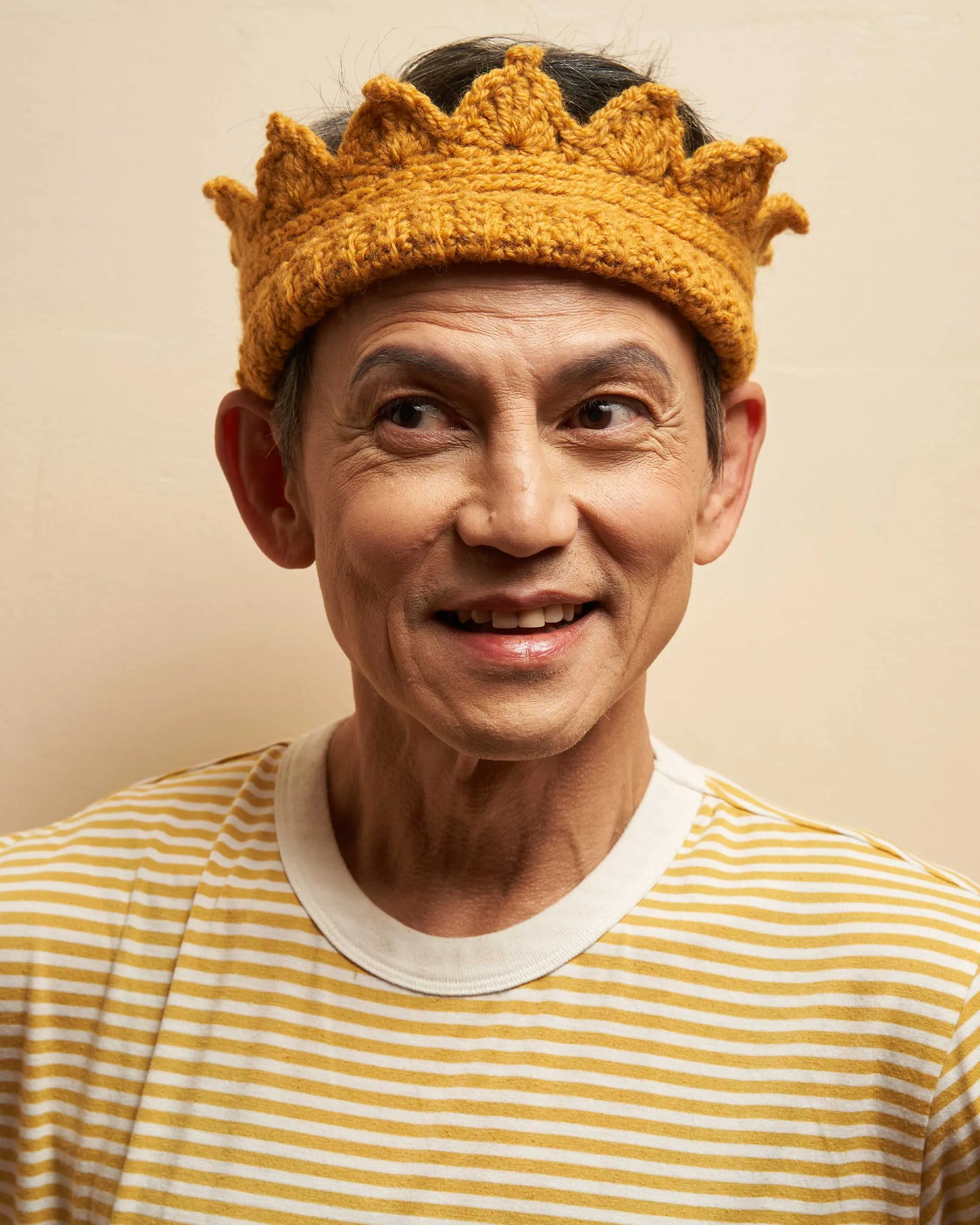Courtesy of The Sandbox Collective
As Jon Santos goes through his limited run at Bawat Bonggang Bagay, the actor shares his insights, lessons, and gratitude for the one-man show.
Jon Santos is jovial as he hands out numbered colorful pieces of paper before the show starts. “I will give you one of these, and you’re going to shout it out when I call your number,” he instructs the audience, who were anxious yet excited about what the show would bring. Bawat Bonggang Bagay, a Filipino-translated staging of Duncan Macmillan and Jonny Donahoe’s Every Brilliant Thing, is a one-man show that interacts with its audience, inviting them to laugh, clap, cheer, and at some points, pulling them on stage to act.
Directed by Jenny Jamora, the play follows the story of a young child (played by Santos) growing up with a parent suffering from mental illness. By creating an intimate and interactive space, the story explores the conversation on mental health while creating a safe and communal space where audiences become part of the storytelling.
In an interview with Vogue Philippines, Jon Santos shares his Bawat Bonggang Bagay experience and a few brilliant things he’s grateful for.
This interview has been condensed for clarity.
What drew you to Bawat Bonggang Bagay? Was there something in the story or its message that resonated with you?
It’s a story from my experience. It’s a quote-unquote from the audience to the stage story. I was in the audience watching Teresa Herrera. And I saw the structure. So, two things: the story and the structure. I love the little pockets of improv where, after the actor assures the crowd of a safe space, the crowd entrusts their 30, 60 seconds, 90 seconds of their time to the actor and maybe gets a little uncertain, uncomfortable, vulnerable. I love that because when it comes to improv as an actor, my anxiety level is elevated. But, oh, it’s just one minute.
It’s such a nice little dose of improv in a monologue, which is pretty much my passion. So that was the structure. So the story, of course, is coming of age, seven years old, eight years old. I knew what I wanted from the world at seven and eight years old. I saw myself in that little kid. Old soul. Old soul ako. Old soul siya.
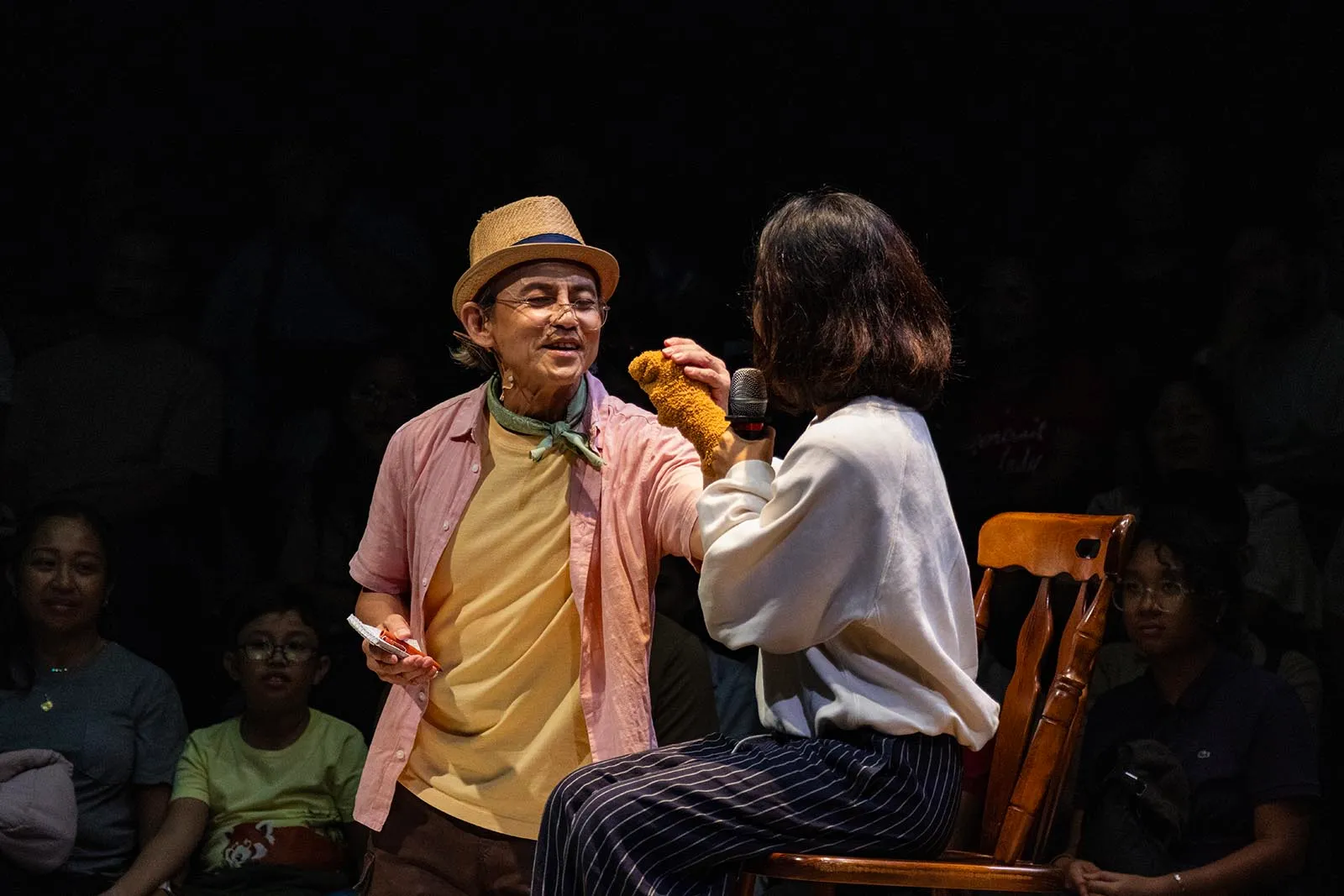
Jon, this show is known for its interaction with the audience. As someone known for sharp, often satirical performances, how did you adjust your energy for this more intimate participant format?
The digging deep was inward. For the other kinds of shows I was used to doing, the digging deep was outward. In the morning, you’re looking at news streams or hard copy broadsheets and tabloids for bits of current information that you can turn into comedy gold for that evening’s show. So the digging deep was from outside me. For this show, it’s digging deep from inside me.
What is my history with my mother? What is my history with my father? What was my history with reaching out to a friend who needed me? What was my database regarding guilt over not being there for someone else? What was my database for being a little overextended to people who felt they could reach out to me, reach out to me, and then ako, give, give, give, give. So all of that was so different from reaching out into a database of the world outside me. That’s the main difference.
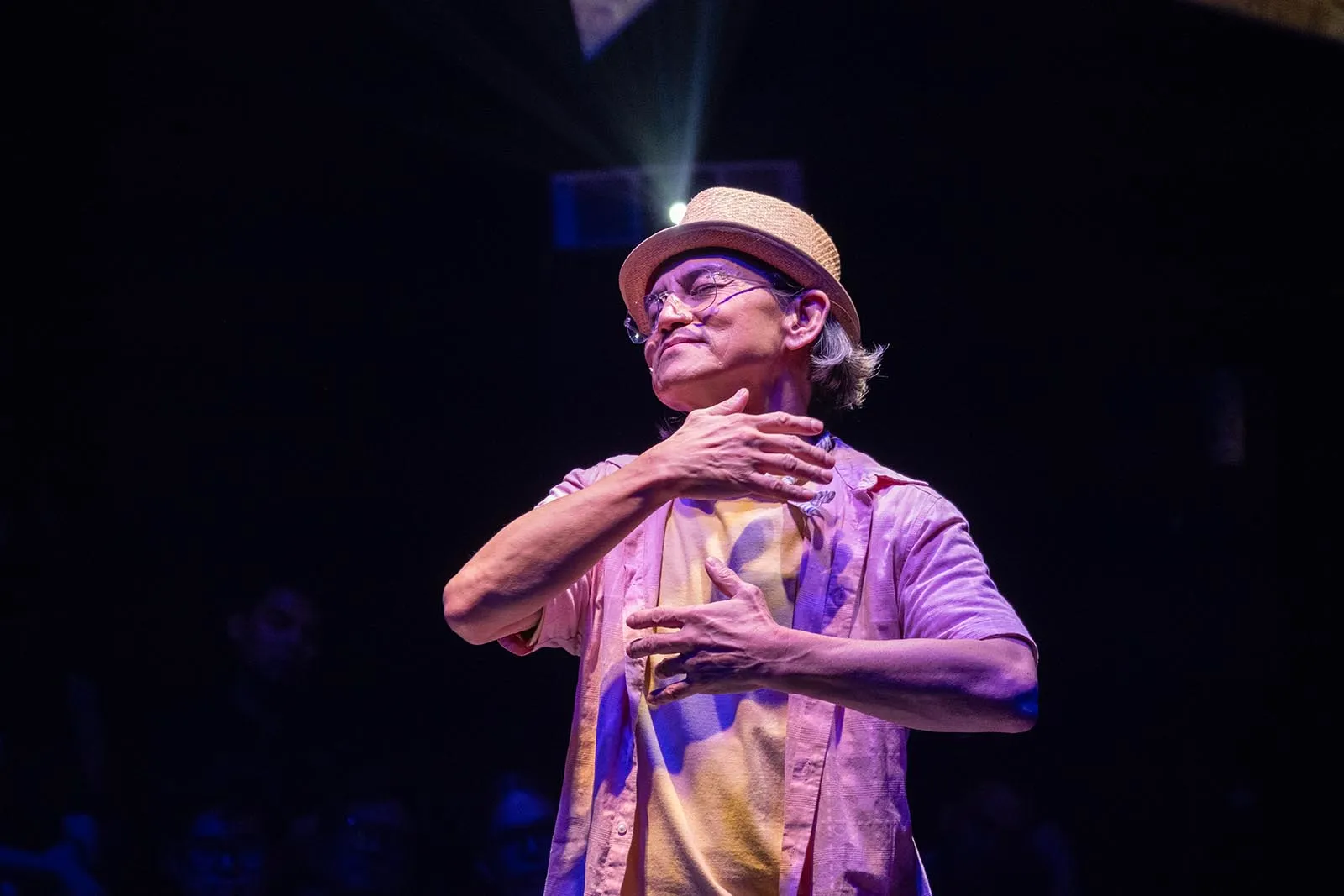
Bawat Bonggang Bagay speaks to the power of finding joy in the small things. What do you hope audiences take away from the show?
A lot of former audience members have reached out on IG to share. I started my list now. I started my list already. And that, for me, is a great takeaway. Start feeling. I hope it becomes easier and easier for all of us to find the gratitude button. That is a big wish. And I’m not surprised that it comes from actors.
In an interview of Meryl Streep with Charlie Rose, they were asked, “What does an actor know that we don’t?” They said, “Oh, we have a very Zen way of living here. We are very good at being in the moment.” Why? Because our life is so transient. So many things are so tentative in our lives. You’re as good as your last gig. Sometimes, home is a dressing room. So, you develop the ability to find peace, find home, find center. And, I guess, gratitude where you are. And then the interviewer said, “Wow, isn’t that what we all want? To be able to live in the moment.”
So, two things. Learn to be grateful. Because it’s not as hard as you think. And to live in the moment. Because when you live in the moment, you’re open to the surprises of the universe.

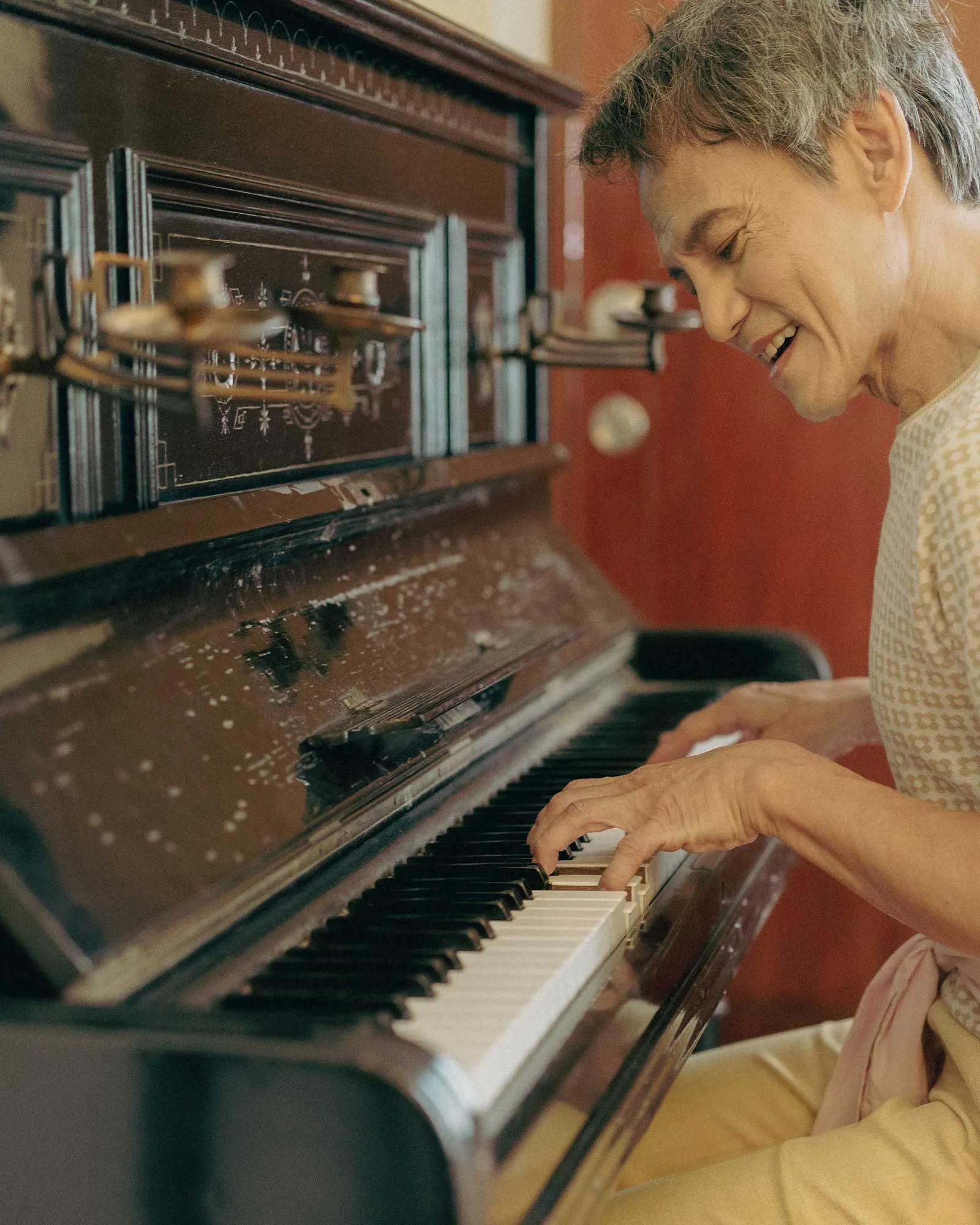
Were there any bonggang bagay in your own life that helped you through difficult times? How did they help you?
Solitude. I escaped to a little farm in the south. There’s this little farm that, you know, it’s the little family farm. It’s small, it’s not even one hectare with a few bahay-bahayans and vegetables, and fruit. And it’s not even a glamorous spa-looking retreat. Maybe in the future, it can evolve.
But right now, it’s just home. It’s just the home in the country. There’s this little place.
It’s called Mana, M-A-N-A. My dad pretty much set it up many years ago. And also for my mom to recover better. And they were never hit by COVID because of the vitamin D and because of the air. Long answer, short answer. There’s this little farm I escaped to as often as I can to be in the loving embrace of my mother.
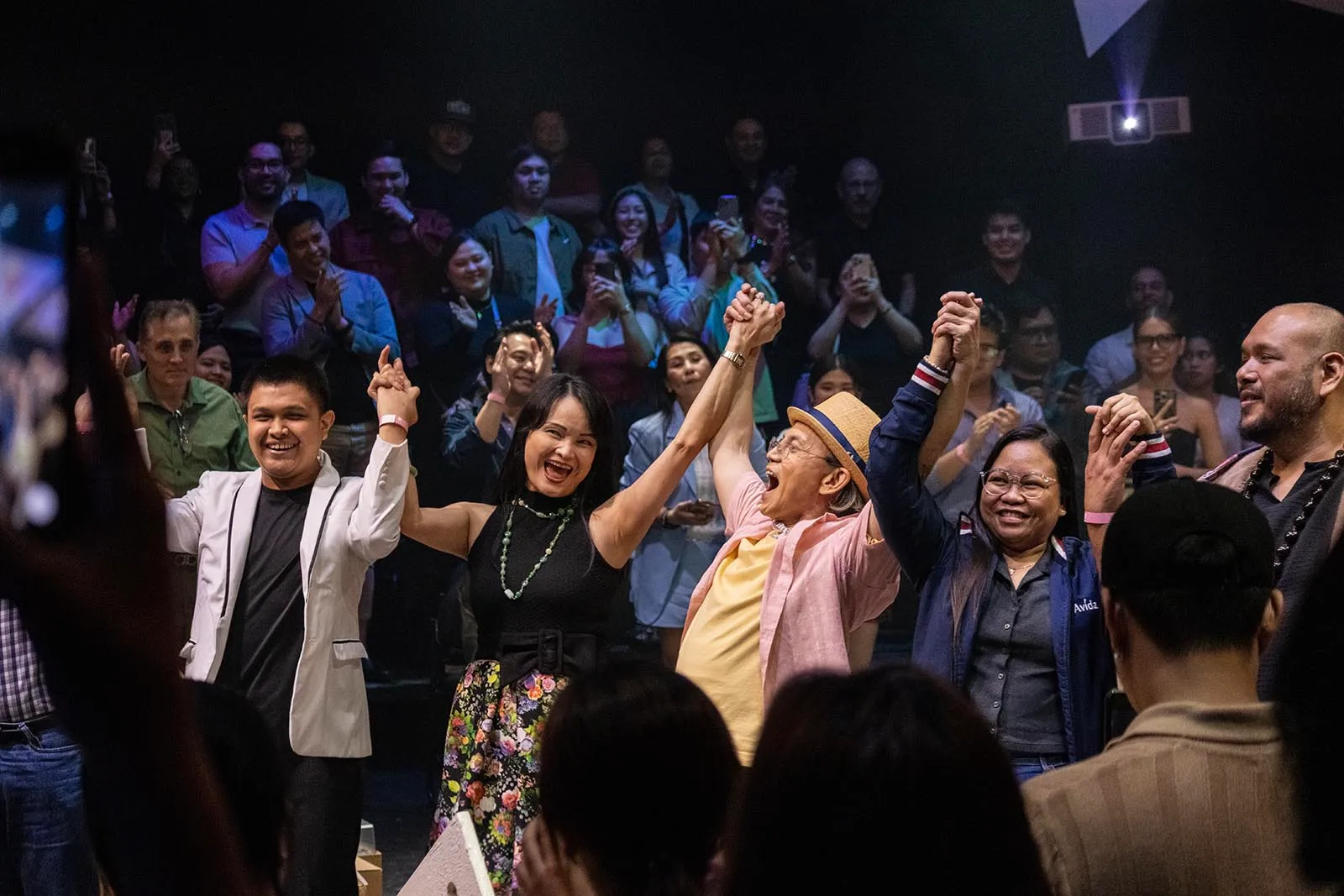
Sometimes I go there alone, but there’s so much alone time. So bongga for me, if I were to go [make] a list, it’s a day off. [Number] 1,000,001, day off. It’s a good day off. Not all days off are good. Because sometimes your day off, half of it you’re recovering from the previous day. And then the other half, it’s a compromise because you’ll get anxious planning on how to celebrate that day off.
You’ve already wasted one-fourth. So you have three-fourths wasted. You have only wasted one-fourth. But if you’re present, then you find, Oh, I can do it. It’s fast. There’s no traffic now from Makati. Then you go, and then you drop your bag. You put on your slippers. And you sit alone. Look at Mama’s room. Check in on her. Maybe she’s sleeping. You settle. You settle where she’s sitting somewhere with this laptop or sleeping. I find myself alone, sitting in the garden. Because I said, I’ve had fun.
Short answer: a day off, where you find a lot of time to have windows to be alone. Because I have concluded that solitude doesn’t mean isolation. Solitude is beautiful. Don’t be afraid that you’re missing out. You’re not always missing out. Solitude is beautiful.
Bawat Bonggang Bagay will run at the Power Mac Center Spotlight Black Box Theater in Circuit Makati until June 22, 2025.
